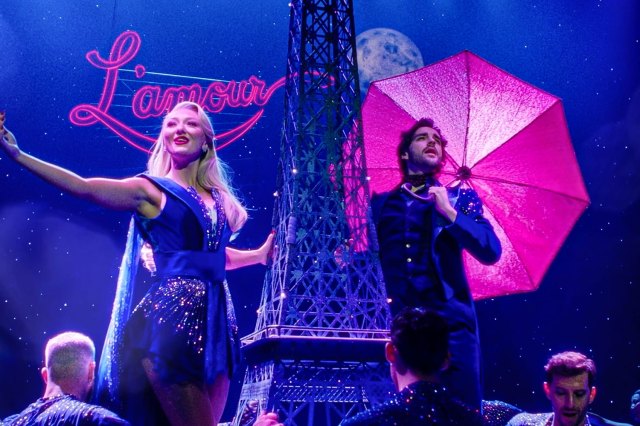Lyn Gardner's departure is a shame, but it isn't the death knell for criticism
After an article in Wired called Lyn Gardner the last reliable mainstream chronicler of contemporary British theatre, Matt Trueman says its not as simple as that

Like many others, I was startled and saddened to learn that the Guardian is letting Lyn Gardner go after 23 years of criticism. The paper has opted not to renew her contract from June, part of a drive, it said in a statement, "to add some new voices to our arts coverage".
It's hard not to see it as cost-cutting. The Guardian's financial straights are well documented and, while it's set to balance its books next year, it still ran £17 million in the red last year; numbers that necessitate further belt-tightening. What a shame it's her criticism being squeezed out.
A shame, but it's simple. The thing that made Gardner's criticism so valuable is the very thing that makes it expendable. She gave space to the sort of theatre that would otherwise sit on the sidelines. That, sadly, doesn't pull in many hits – hard currency online. Theatre's niche at the best of times. It's a local art-form, and the internet's global. No new play can pull in readers like Star Wars or Beyoncé; still less an emerging live artist playing a disused warehouse in Hackney Wick.
In his Wired article, Manthorpe gets some things right, but he gets a lot more wrong
Yet that work can be just as exciting, insightful and culturally significant as anything else. It deserves attention and consideration, and Gardner gave it both. Her criticism had cultural value, if not market value.
This weekend, a Wired article's done the rounds; its headline claiming "the internet killed the cultural critic". Writer Rowland Manthorpe makes a blinding intellectual backflip – from Childish Gambino to Lyn Gardner, as unlikely bedfellows as any. Leaping from a Guardian listicle about "This Is America" to the loss of an experienced theatre critic from the same (web) pages, he concludes that crowd-sourced opinion has supplanted cultural criticism.
Manthorpe gets some things right, but he gets a lot more wrong – largely because he draws a distinction where none exists. He's good on the economics of criticism, less so on the culture of it. Because what Gardner's done for The Guardian over 23 years isn't, at heart, any different from what thousands of people are doing online: engaging with art, challenging it, championing it. Indeed, it was thanks to online responses that I began to appreciate the depth of symbolism in "This Is America". Hell, that was what alerted me to its existence in the first place.
Far from bringing about the death of cultural criticism, the internet has enabled its rebirth
Far from bringing about the death of cultural criticism, the internet has enabled its rebirth. It's triggered an explosion of critical engagement: new voices, new platforms, new modes of expression. It's made more space for more criticism – more of it in-depth, more of it enjoyable – about a wider range of art than ever before. It's given us fresh perspectives, alternative readings and, bit by bit, critical diversity. Every long-read and live-blog, every tweet, podcast and GIF – all of it's criticism of one form or another. Some of it's great, some is godawful, but collectively, it's changing the way we see art and, indeed, the art that we see.
To follow Manthorpe's economic case, the internet has disrupted a monopoly or, in cultural terms, an establishment. Professional critics used to sigh, "Everyone's a critic now". They should have toasted it with cheers. Ironically, Lyn welcomed that more than any of her peers.
Her work made me see that what a critic covers is as much a critical act as what they actually write
Without the internet, I wouldn't be a critic. I began writing on a blog and, ten years on, more of my criticism lands online than in print. Throughout that time, Lyn's been a lodestar. More than any other critic, she's taught me what criticism can be and do. Her work made me see that what a critic covers is as much a critical act as what they actually write. "It's not just the way shows are reviewed that defines what is valued in our culture," she wrote in 2010, "but what gets reviewed in the first place".
Newspapers, by definition, tend to cover newsworthy art: star names, big theatres, topical, political plays. Lyn, often alone, carved a space for something else: for questing, emerging, experimental theatre, community work, small-scale shows; for the personal and the playful. She prioritised the new – ideas, forms, voices – over the newsworthy. As Forest Fringe's Andy Field wrote last week, she pulled art and artists into public view. She smuggled the alternative into a national newspaper.
Equally, Lyn taught me the ethics of reviewing: that what a critic leaves unsaid can be as significant as what they say. She reviewed me once, well over a decade ago: a first show by a fledgling company. Only rather than writing our show up in full – holding us to the same standards as established, international artists and, likely, saddling us with a drubbing – she flagged us and other emerging companies in a blog as artists she hoped to see more of going forwards. She didn't – we folded – but I never forgot that small gesture of support.
Critics don't change the culture by judging what's already there, but by supporting what's not
This is what Lyn gets absolutely: critics don't change the culture by judging what's already there, but by making space for and supporting what's not. She talks of criticism not as gatekeeping, but midwifery – a way of bringing great art to bear. That involves holding artists to account as much as cheering them on, but her criticism's always sought to open doors rather than close shows. Slowly, stealthily, bit by bit, she has changed British theatre for the better.
Online criticism has done the very same thing – but at doublespeed. Those new voices have shifted the art being produced: Gambino's referential video is a case in point. In theatre, specifically, the rise of new critical voices and new channels of recommendations have already had a significant effect. They've emboldened artistic directors to programme edgier work, confident it can find an audience without the old guard's critical approval. They've allowed independent artists a space to spread the word about short runs in small spaces – the sort of show newspapers struggle to cover – and they have, I'm certain, motored the drive towards diversity on our stages, giving space to a long overdue debate and pointing different audiences to different sorts of work.
Lyn Gardner's departure isn't the death knell for criticism. It's part of a wider evolution that is, in turn, enabling culture to evolve. The two things are becoming increasingly inseparable.


















